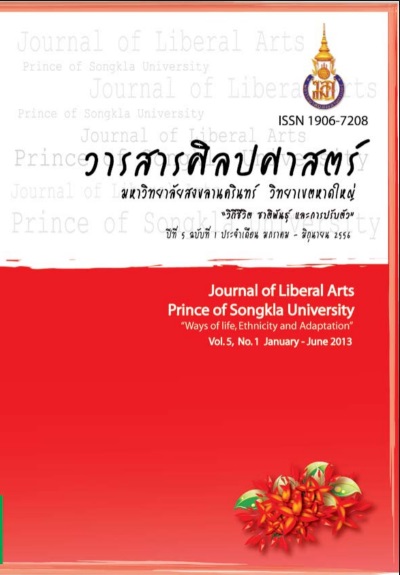Autoethnography: Introductory conceptual framework
Keywords:
ethnography, autoethnography, autoethnographic writing, crisis representationAbstract
The author was impressed with the application of ethnographic research as a writing approach of her doctoral dissertation. To get insight and a deeper sense of the world of expertise in lived experiences, the author, as a researcher, thus decided to explore the issue further regarding introductory conceptual framework of autoethnographic writing and autoethnography. The paper is presented into two sections: theory and practice. In the first, it described definitions, crisis representation of autoethnographic studies and the fifth moment. The second part then discussed the roles, the strengths and the limitations of autoethnograpic writing research methodology. The paper ended with reflections on autoethnographic experiences. The author’s major assertion was that autoethnography is of important for expressing voices, liberating writing and strengthening relationship between readers and writers. The author strongly contended that if the ethnographer has any expertise, it is the expertise that comes from subjective experience and implicit knowledge.
Downloads
How to Cite
Issue
Section
License
The authors retain the copyright to their article but the Journal of Liberal Arts, Prince of Songkla University reserves the exclusive rights to first publication.






